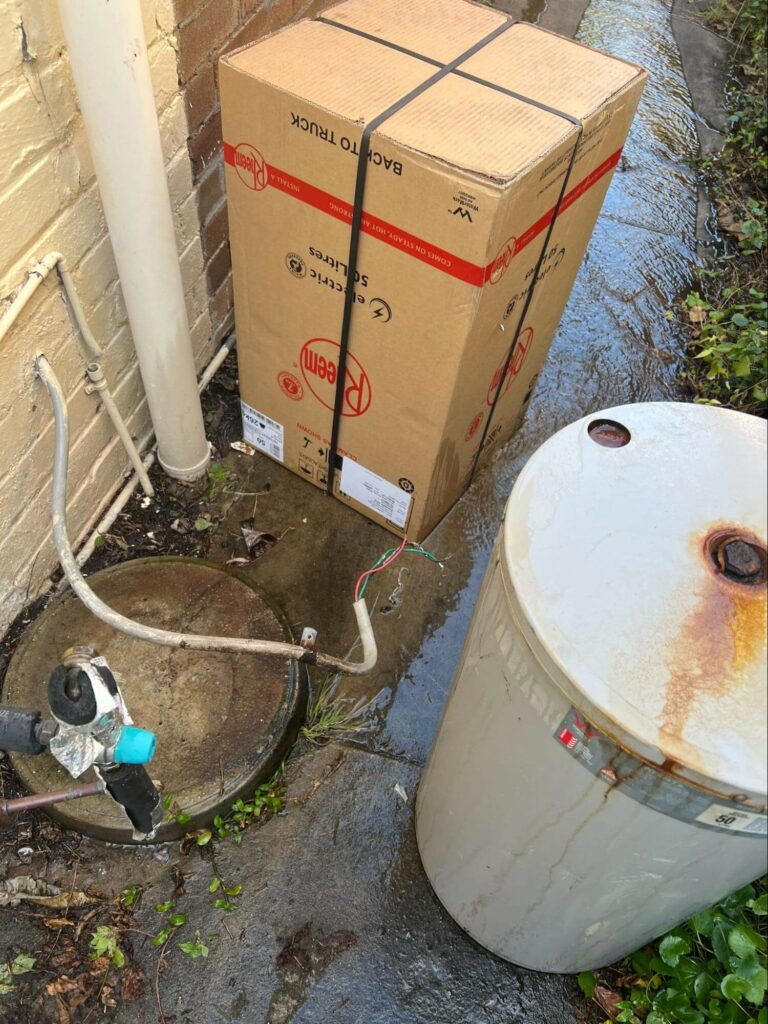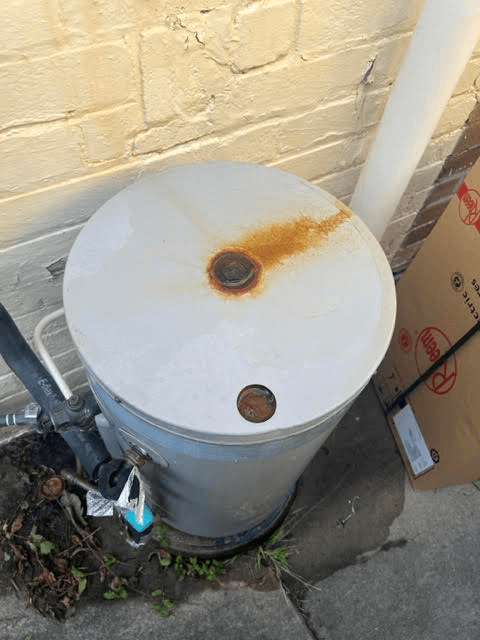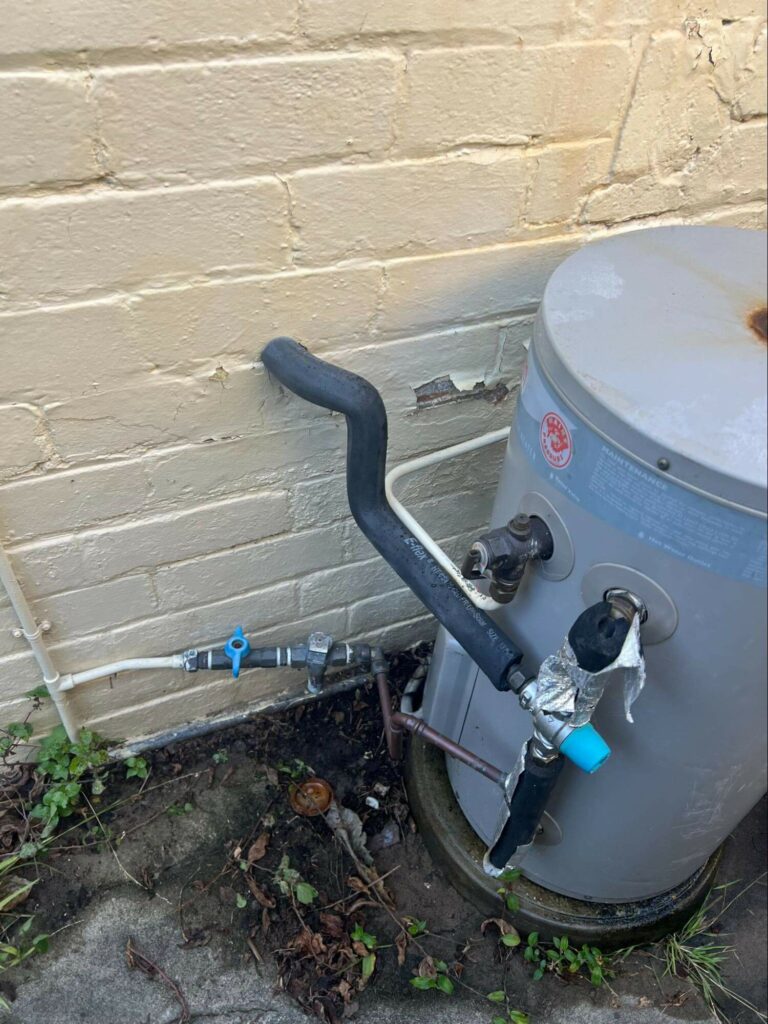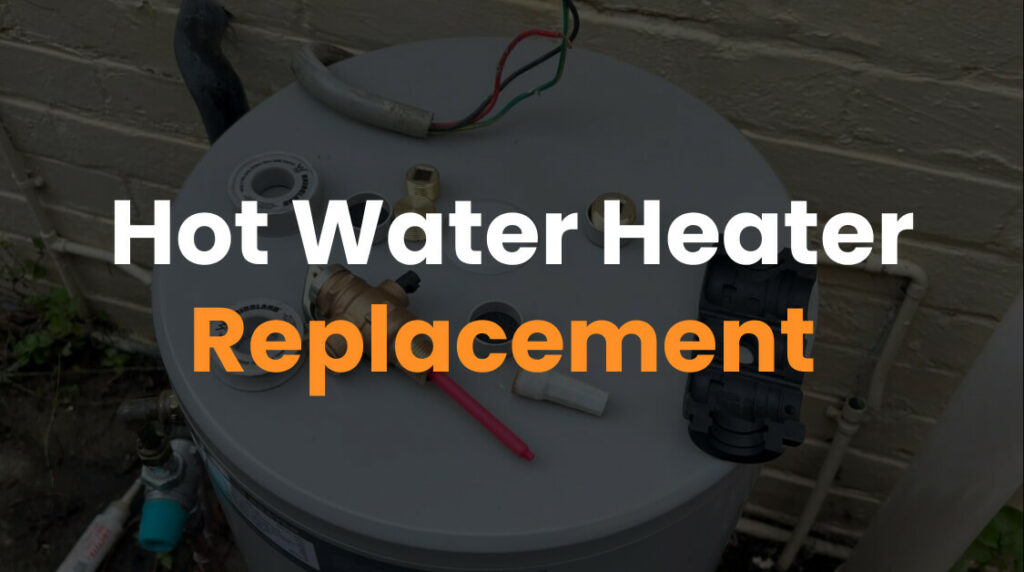What The Client Was After
At Plumbwell Plumbing Services, we recently tackled a pressing issue for a client in Botany, NSW. They were dealing with a 50L hot water heater that was well past its prime and showing clear signs of deterioration, leaking profusely from its seams. The result? The client was left without any hot water, desperately in need of a swift and efficient solution.
What Work Was Completed
In response to the urgent situation, we took immediate action. Within just an hour of receiving the client’s distressed phone call, we had one of our highly skilled technicians dispatched to their location. The old, malfunctioning water heater was swiftly replaced with a new, high-performance model. To ensure optimal operation, the new water heater was promptly commissioned, bringing hot water back to the client’s premises swiftly and efficiently.
Signs Your Hot Water Heater Needs Replacement
- Inadequate Hot Water: If your hot water heater is unable to maintain a consistent temperature or you’re frequently running out of hot water, it could mean that the heater’s efficiency is compromised and may need replacing.
- Advanced Age: Most water heaters are designed to last between 8-12 years. If your heater is approaching or beyond this age range, it’s likely time to consider a replacement.
- Noisy Operation: Rumbling or popping sounds are often a sign of sediment build-up in the tank. Over time, the hardened sediment can cause the heater to operate inefficiently and could even damage the tank.
- Leaking Water Heater: This could be a sign of a serious issue. If the tank is cracked or corroded, it might start leaking water. If unchecked, this could lead to significant water damage in your home.
- Frequent Repairs: If you find yourself calling for repairs often, it’s a good indication that your heater is failing. At some point, it becomes more cost-effective to replace the entire unit rather than continue with repeated repairs.
- Cloudy or Rusty Water: If your hot water is discoloured or has a metallic taste, it could mean that the inside of your tank is corroded or rusted. A rusted tank is a serious issue and usually necessitates a replacement.
- High Energy Bills: If you notice a significant increase in your energy bills, it might be due to an inefficiently working water heater. Over time, heaters can lose their efficiency, especially without regular maintenance.
Remember, timely replacement of a failing water heater can prevent further issues such as water damage or inefficiencies that lead to high energy bills. Always consult a professional plumber if you notice any of these signs.
Preventive Maintenance to Extend the Life of Your Hot Water Heater
Preventive maintenance plays a crucial role in extending the life of your hot water heater. Regular inspections and upkeep can not only keep the heater running efficiently but also prevent unexpected breakdowns.
A few simple maintenance tasks include regularly draining and flushing the tank to remove sediment build-up. Sediment can cause the heater to work harder than necessary, reducing efficiency and potentially causing damage over time. This process typically involves emptying about a quarter of the tank a few times a year.
Regularly checking the pressure relief valve can also help extend the heater’s lifespan. This valve is designed to automatically release pressure if the tank pressure gets too high, preventing potential explosions. If the valve doesn’t open properly or leaks water when closed, it may need to be replaced.
Additionally, inspecting the anode rod every few years can prevent rust inside your tank. If the rod is heavily corroded, it should be replaced.
Regular preventive maintenance can lead to more reliable and efficient operation, extending the life of your hot water heater and saving you money in the long run. Always consult a professional if you’re unsure about performing these tasks.
Hot Water Repair VS Replacement
When dealing with hot water heater issues, the choice between repair and replacement can be a tough one, and the right decision often depends on a number of key factors.
On one hand, repairing your existing heater can be a cost-effective short-term solution, particularly if the unit is relatively new and the issue is minor. Repairs could involve replacing a faulty thermostat or heating element, or removing sediment buildup, which are generally less expensive than a full replacement.
However, when your heater is reaching or has surpassed its lifespan (usually 8-12 years), frequently breaks down, or is noticeably inefficient, replacement might be the best course of action. The initial cost of a new hot water heater may be higher, but it can be more economical in the long run. Newer models tend to be more energy-efficient, which can lower your utility bills, plus you’ll avoid the recurring costs of constant repairs.
Always consult a plumbing professional to assess your specific situation and provide the best advice on whether to repair or replace your hot water heater.
Who Worked on the Job
Sam Pearson – Plumber
Where the Job Was Completed
Botany, NSW 2019
The original water heater
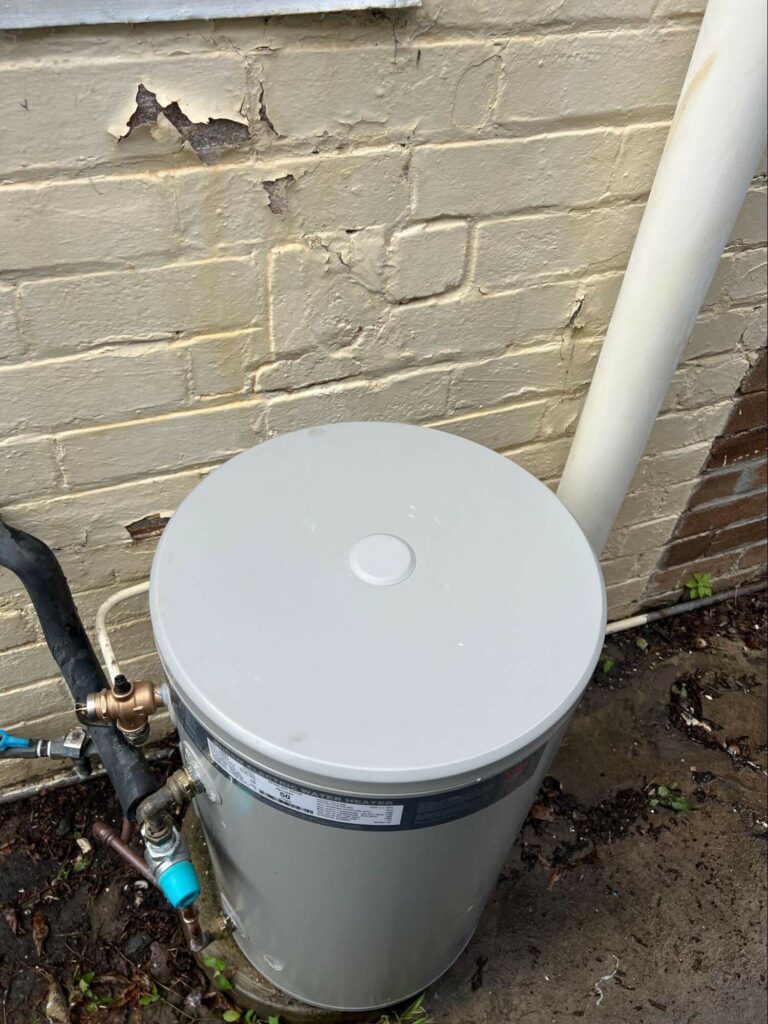
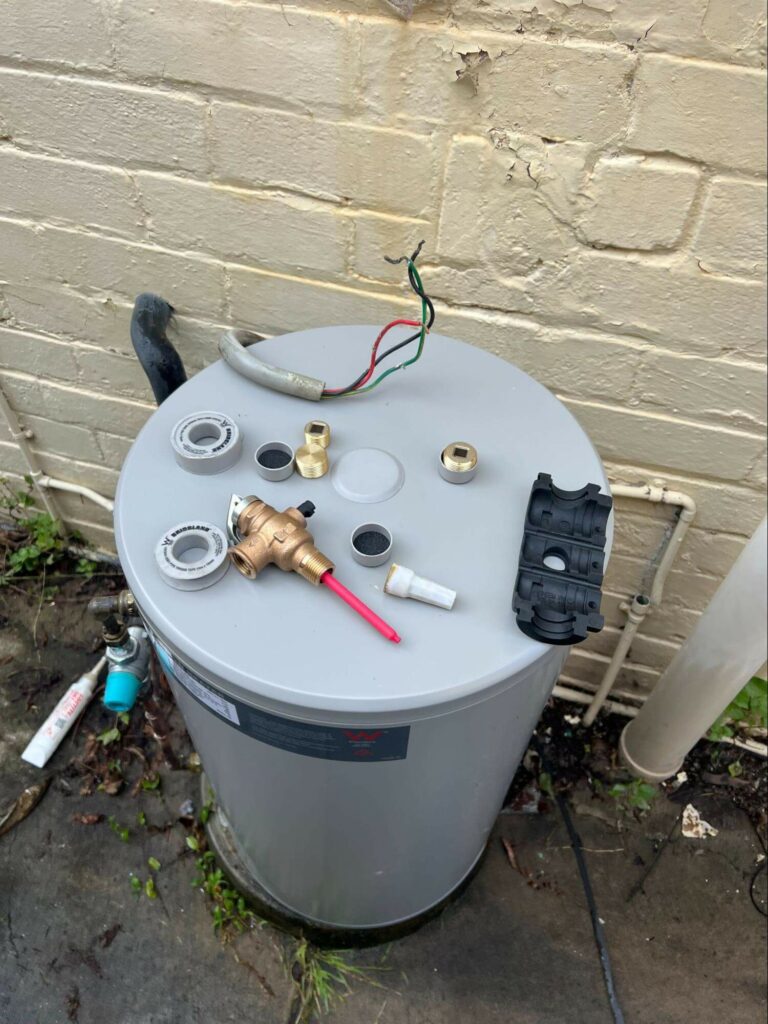
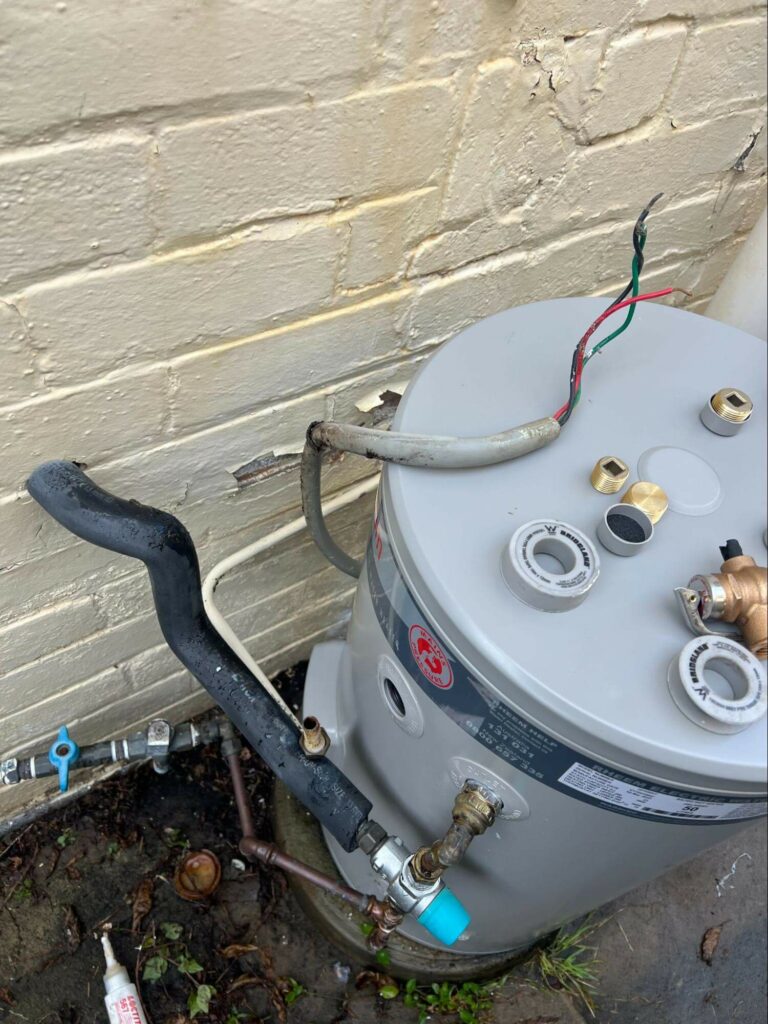
New hot water heater:
